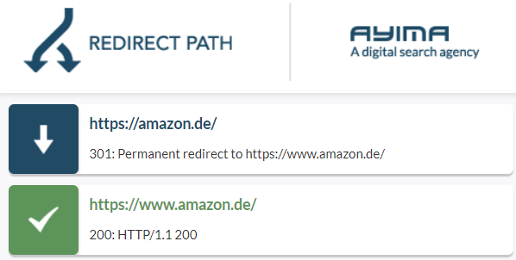Building an SEO strategy includes creating a plan to increase traffic to your website and, ultimately, increase sales. After all your efforts, the last thing you want to do is make dreaded SEO mistakes that negatively affect your search result rankings.
So, let’s talk about four SEO-related pitfalls that can potentially harm your online presence and, consequently, your business. But don't worry, because along with each issue, we'll provide you with a practical solution to mitigate the damage.
Read on to find the list of common SEO pitfalls.
Disallow Google from Accessing Your Website
Have you heard of the "robots.txt" file? If not, it's time to get familiar with the concept. The robots.txt file serves as a set of instructions for web crawlers, telling them which parts of your website they can access and which ones to avoid. It plays a crucial role in guiding search engine bots and ensuring they index your pages correctly.
However, if you unintentionally set up your robots.txt file to disallow Google from crawling your entire website, it can spell disaster for your search engine rankings. To avoid this, make sure you create and structure your robots.txt file correctly.
The robots.txt file is a text file that resides in the root directory of your website. It serves as a communication tool between your website and search engine crawlers, providing instructions on which parts of your site should be crawled and indexed by search engines.
The primary purpose of the robots.txt file is to control the behavior of web crawlers, such as Google and others. By specifying the directives within the file, you can allow or disallow access to specific sections of your website, manage crawl rates, and control which pages get indexed by search engines.
The robots.txt file follows a specific structure. Each line consists of two main components: the User-agent and the Disallow directive. The User-agent identifies the web crawler or user agent the directive applies to, while the Disallow directive specifies the directories or files that should not be crawled.
For more information, access this helpful guide.
Double Migration to the Main Version of Your Website
Imagine this: you have multiple versions of your website, and when users try to access them, they are redirected multiple times before reaching the main version. This scenario creates what we call redirect chains, and they can harm your rankings and conversions.
Let's break it down using an example. Suppose your main version is "https/www," and you have other versions like "http/non-www" and "http/www." Each version redirects to the next, ultimately leading to the main version. The problem is that approximately 70% of the link equity is lost with each redirection. So, the math looks like this: 70% > 70% > main version.
The solution is to have each version directly link to the main version of your website. Take a cue from Amazon, which has successfully implemented this strategy:

By doing so, you ensure that link juice is not diluted with each redirection. It would look like this:
- Version 1 forwards 70% to the main version.
- Version 2 forwards 70% to the main version.
- Version 3 forwards 70% to the main version.
That's the right way to handle it!
Keyword Cannibalization
Include relevant images from GSC and SERP.
Keyword cannibalization occurs when multiple pages on your website target the same keyword. This can confuse search engines and diminish your chances of ranking well for those keywords. Ultimately, it leads to reduced organic traffic and conversions.
Consult our guide to choosing the right keywords to avoid keyword cannibalization.
How to Find Cannibalized Keywords
Identifying cannibalized keywords is crucial to addressing the issue and optimizing your website's SEO performance. Here are two effective methods to help you find these cannibalization culprits:
Google Search Console
Google Search Console (GSC) is a valuable tool that provides insights into how your website performs in search engine results. It offers a dedicated section called "Performance," where you can analyze your website's keyword rankings and identify potential cannibalization issues.
To find cannibalized keywords using GSC:
1. Log in to your Google Search Console account and navigate to the "Performance" section.
2. Make sure the date range selected is appropriate for your analysis.
3. Scroll down to the table displaying various performance metrics.
4. Look for keywords that have multiple pages ranking for them. These can indicate potential cannibalization.
For instance, cannibalization is likely occurring if you notice that two or more pages are ranking for the same keyword. Take note of these keywords and the corresponding pages.
Search Parameters
Another method to uncover cannibalized keywords is by utilizing search parameters. By using the site:domain.com intitle:[keyword] query in a search engine, you can identify pages within your website that target specific keywords.
Here's how to find cannibalized keywords using search parameters:
1. Open your preferred search engine (such as Google) and enter the following query: site:yourdomain.com intitle:[keyword].
2. Replace "yourdomain.com" with your actual website domain and "[keyword]" with the keyword you suspect is being cannibalized.
3. Hit the search button and examine the search results.
This search parameter query helps filter the search results to show only the pages on your website with the specified keyword in the page title. If you notice multiple pages appearing in the search results for the same keyword, it indicates potential keyword cannibalization.
Take note of these pages and analyze their content and relevance to the targeted keyword. This will help you determine if cannibalization is happening and which pages need optimization.
How to Fix Keyword Cannibalization
So, how can you fix keyword cannibalization? There are a few approaches you can take:
Redirections
If you have multiple pages competing for the same keyword, consider redirecting them to a single, authoritative page on that topic. This consolidates your ranking potential and prevents cannibalization.
Canonical Tags
Implement canonical tags on your pages to indicate which version should be considered the primary one for search engines. This helps consolidate ranking signals and prevents keyword dilution.
Optimized Internal Linking Strategy
Ensure your internal linking structure guides search engines to the most relevant and authoritative page for each target keyword. This way, you reinforce the preferred page's importance and increase its chances of ranking higher.
IP Based Cloaking
IP-based cloaking is a practice where websites serve different content to search engine bots compared to regular users. While it may seem like a clever tactic to improve rankings, it violates search engine guidelines and can result in severe penalties.
Google Penalty for Cloaking
Google takes a strong stance against cloaking and penalizes websites that engage in this deceptive practice. The penalties for cloaking range from significant drops in search rankings to manual actions and damage to the website's reputation.
It is essential for website owners and SEO practitioners to prioritize ethical SEO practices to maintain a sustainable online presence and avoid the detrimental consequences associated with cloaking.
Consider Using Hreflang Tag
To avoid a Google penalty for cloaking, consider using the "hreflang" tag. The hreflang tag helps search engines understand which language and regional versions of your website to display to users based on their location. Implement hreflang correctly to present the appropriate version to users while complying with search engine guidelines.
Contact the Experts for Better SEO Success
Honesty and transparency are key to maintaining a healthy relationship with search engines and curating a trusted SEO reputation. By addressing these issues head-on and implementing the suggested solutions, you'll be on the right track to safeguarding your online presence and driving sustainable growth.
Our team at Loupe & Blade wants to create an SEO strategy that will deliver measurable results. Let’s get started on growing your business through SEO.

No Comments.